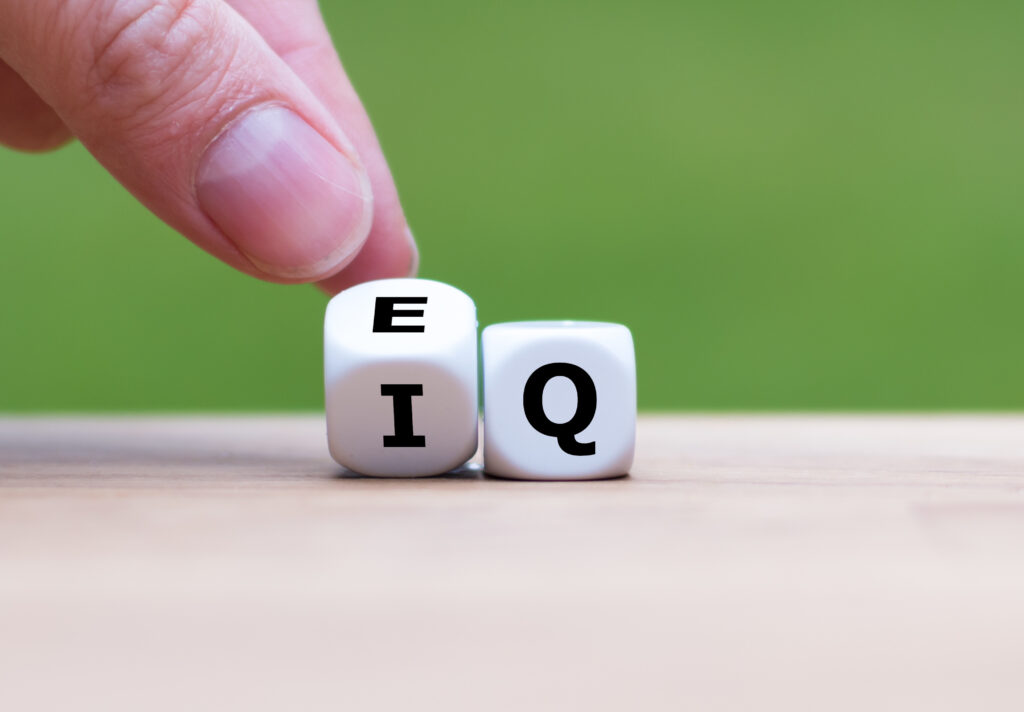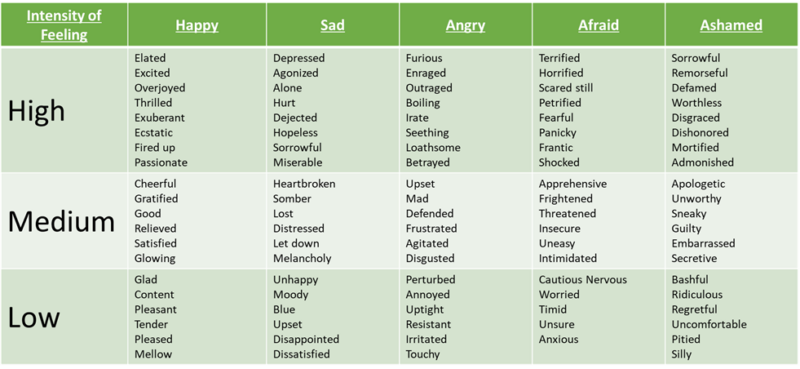
Have you ever lost your cool and later wished you had responded differently? Are you curious how self-awareness and self-regulation helps? For many of us, this occurs more frequently than we want to admit. We yell at our children; we are sharp-tongued with our spouse, or snippy with our coworkers.
Why are we able to have decent, regular conversations so much of the time, but a particular situation, person, or comment sends us through the roof? An understanding of how self-awareness and self-regulation helps us will begin to shed light on this common experience. The study of emotional intelligence gives us some of the answers.
Emotional intelligence (sometimes referred to as emotional quotient) is your ability to recognize and understand emotions in yourself and others and use this ability and awareness to manage your behavior and relationships. Developing this ability allows us to recognize how we feel in the moment and choose how we respond to those emotions; we also can recognize emotions in others and respond appropriately.
Emotions are spontaneous and related to our interactions with a person, place, or situation. We do not control our emotions, but if left unchecked, our emotions can control us. The brain’s limbic system produces emotions, and the frontal lobe controls emotional expression, behavior, and problem-solving. Yet, we often react to a situation before our brains have time to process the emotion within the frontal lobe. Before reacting, you must take it upon yourself to feel the emotion and define it and choose how to respond. Practicing meditation helps improve mindfulness and self-awareness and, therefore, self-regulation, vital to gaining control over our emotions.

This chart helps us understand some of the variations of emotions.
Self-Awareness
Many individuals have not been taught to identify their emotions. However, the first step to developing emotional intelligence is understanding how we feel and where those feelings originate. In short, the practice of self-awareness. “Self-awareness theory is based on the idea that you are not your thoughts, but the entity observing your thoughts; you are the thinker, separate and apart from your thoughts (Duval & Wicklund, 1972).” When you can identify your frustration or anger, you are less likely to react to it. Just the awareness and acknowledgment of the emotion can help you be more deliberate with your behavior rather than react inappropriately.
Developing good self-regulation takes patience. Listen patiently and hold yourself to a high standard of conduct. Remember that emotions are not right or wrong; they just are. Acknowledge your emotions to help put things into perspective.
Self-Regulation
Having healthy self-regulation allows you to choose how you respond when faced with strong emotion. It is beneficial to express emotions, but it matters how you express them. Due to experience, you already have an idea of the situations or people who elicit strong emotions. By recognizing those triggers, you can be preemptive in engaging your frontal lobe in rational thinking.
Additionally, assuming good intentions aids considerably in self-regulation. I once struggled when team members would question my decisions. As I have grown in my emotional intelligence, I have learned that my team members do not intend to challenge me, but instead are trying to understand.
Want to transform your energy? learn about the innovative model of personal effectiveness, how to better cope with modern requirements, stressors, lack of focus, stimulation, care for mental, physical, emotional and spiritual well-being, and so much more!
Finally, work to mentally separate emotion from logic and respond to logic with logic. Although self-regulation is an intrinsic activity, it produces relationships characterized by increased and improved trust, communication, and collaboration.
Peregrine Global Services provides Leading Edge Learning: Competency-Based Modules to promote the development of key workplace competencies, including emotional intelligence.
Click here to learn more ways you can develop your emotional intelligence.


